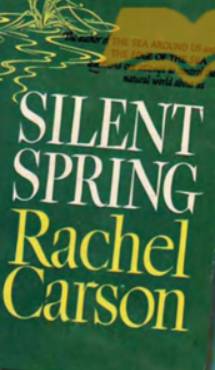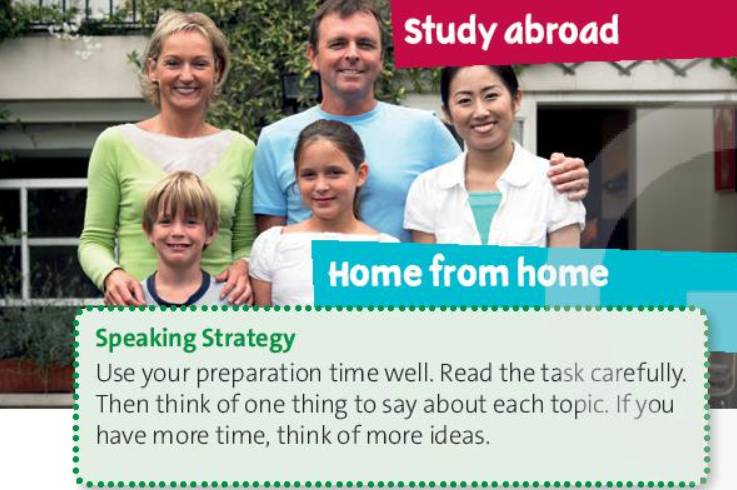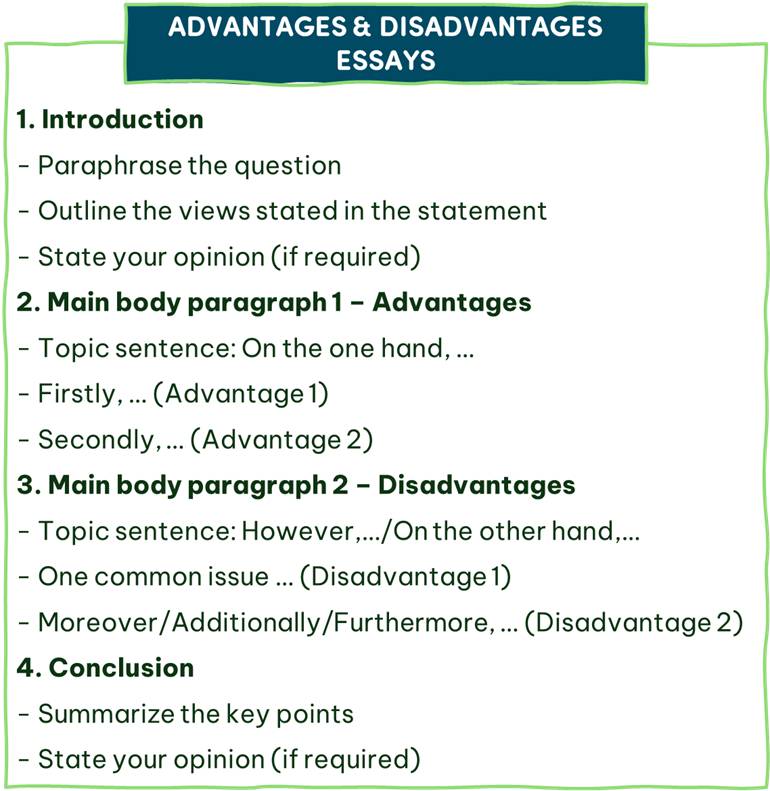Hãy nhập câu hỏi của bạn vào đây, nếu là tài khoản VIP, bạn sẽ được ưu tiên trả lời.


1 Where is Wat Arun located?
(Chùa Arun nằm ở đâu?)
2 Why is Wat Arun called the 'Temple of Dawn'?
(Tại sao Wat Arun được gọi là 'Ngôi đền Bình minh'?)
3 What can be filled in bread to make difference to banh mi?
(Có thể cho nhân gì vào bánh mì để tạo sự khác biệt cho bánh mì?)
4 Why are vegetables added to banh mi?
(Tại sao rau được thêm vào bánh mì?)
5 When are the buses packed with passengers?
(Khi nào xe buýt chật cứng hành khách?)
6 Which opportunities can be offered to the man's family?
(Những cơ hội nào có thể được cung cấp cho gia đình của người đàn ông?)

a) countable nouns: document, gadget
(danh từ đếm được: tài liệu, tiện ích)
b) uncountable nouns: habit, health, information, money, music, software, website, homework
(danh từ không đếm được: thói quen, sức khỏe, thông tin, tiền bạc, âm nhạc, phần mềm, trang web, bài tập về nhà)

In my opinion the best thing about spending a year with a family abroad is that all of the members have the opportunity to learn and speak a new language and visit different places in another country. Moreover, the young generation can learn in a new educational environment which brings more job opportunities for the future. In contrast, the worst thing about spending a year with a family abroad is missing the place where we were born and grown up. We will find it is strange to eat different food as well as experience new cultures that we aren't used to.
Tạm dịch:
Theo tôi, điều tuyệt vời nhất khi dành một năm cùng gia đình ở nước ngoài là tất cả các thành viên đều có cơ hội học và nói một ngôn ngữ mới cũng như tham quan những địa điểm khác nhau ở một quốc gia khác. Hơn nữa, thế hệ trẻ được học tập trong một môi trường giáo dục mới, mang lại nhiều cơ hội việc làm cho tương lai. Ngược lại, điều tồi tệ nhất khi dành một năm với gia đình ở nước ngoài là nhớ nơi chúng ta sinh ra và lớn lên. Chúng ta sẽ thấy lạ lẫm khi ăn những món ăn khác nhau cũng như trải nghiệm những nền văn hóa mới mà chúng ta chưa quen.

Lời giải:
1. C | 2. D | 3. B |
1. C
Điều gì là đúng về cảm xúc của người phụ nữ khi bước vào nhà?
A. Cô nhận ra rằng cô đã nhớ nhà cũ của mình.
B. Cô ấy rất vui khi trở về nhà.
C. Cô ấy buồn về tình trạng của ngôi nhà. Ngôi nhà tương lai?
D. Cô ấy buồn về tình trạng của ngôi nhà.
Thông tin: As she stepped into the hall after nearly thirty years of absence, she realised at once that she shouldn't have come back.
(Khi bước vào sảnh sau gần ba mươi năm vắng bóng, cô ấy nhận ra ngay rằng mình không nên quay lại.)
2. D
Phản ứng của nhà văn đối với cuộc triển lãm là gì?
A. Anh ấy thấy nó rất thú vị.
B. Nó làm anh ấy nhớ đến một bộ phim khoa học viễn tưởng.
C. Anh ấy muốn mua các tiện ích trực tuyến.
D. Anh ấy không thấy việc sử dụng của nhiều phát minh.
Thông tin: I suspect that they are still wrong. Why do I need a super-intelligent fridge or an internet- surfing mirror?
(Tôi nghi ngờ rằng chúng vẫn sai. Tại sao tôi cần một chiếc tủ lạnh siêu thông minh hay một chiếc gương lướt web?)
3. B
Mục đích của văn bản là để
A. mô tả một ngôi nhà cụ thể.
B. thu hút sự quan tâm của những người đang tìm kiếm một ngôi nhà mới.
C. sơ lược về lịch sử của người xây nhà.
D. giải thích điều gì tạo nên một ngôi nhà chất lượng.
Thông tin: With spacious semi-detached and detached homes from £275,000 to £425,000, we are sure that you will find what you're looking for.
(Với những ngôi nhà liền kề và liền kề rộng rãi từ £275.000 đến £425.000, chúng tôi chắc chắn rằng bạn sẽ tìm thấy những gì bạn đang tìm kiếm.)
Tạm dịch:
Quay ngược thời gian
Khi bước vào hội trường sau gần ba mươi năm vắng bóng, cô nhận ra ngay rằng mình không nên quay lại. Mùi khói gỗ, đá ẩm và giấy cũ kỹ mang quá khứ trở lại mạnh mẽ đến nỗi nó gần như đánh bật cô ra sau. Ngay lập tức cô cảm thấy mình như một cô gái trẻ, cô đơn và sợ hãi trong nhà. Cô nhớ mình đã cảm thấy rất, rất lạnh - không phải vì ẩm ướt và nhiệt độ gần như đóng băng, mà vì một cuộc sống mới khủng khiếp đang bắt đầu. Và cô không thể làm gì để ngăn chặn nó.
Ngôi nhà tương lai?
Cứ sau vài năm, những người theo dõi xu hướng lại nói với chúng tôi rằng ngôi nhà của tương lai đã đến và các thiết bị từ các bộ phim khoa học viễn tưởng sẽ sớm có mặt trong mọi gia đình trên cả nước. Cho đến nay họ đã sai - và sau khi xem triển lãm 'Ngôi nhà của tương lai', tôi nghi ngờ rằng họ vẫn còn sai. Tại sao tôi cần một chiếc tủ lạnh siêu thông minh hay một chiếc gương lướt web? Tôi thà nhìn rõ mặt mình trong một chiếc gương phòng tắm thông thường còn hơn là cố gắng lướt Internet trong khi đang chải đầu! Giá như họ có thể thiết kế một thiết bị để ngăn tôi giết tất cả cây trồng trong nhà. Nếu họ đã làm điều đó, thì tôi có thể quan tâm!
Ackerman ngôi nhà mơ ước
Kể từ năm 1893, những ngôi nhà của Ackerman đã tạo ra một số khu dân cư duyên dáng nhất ở miền nam nước Anh. Những ngôi nhà của chúng tôi kết hợp cảm giác lịch sử với những tiến bộ hiện đại nhất trong thiết kế và công nghệ nhà ở. Giờ đây, bạn có thể có cơ hội sở hữu một ngôi nhà Ackerman hiện đại tuyệt đẹp trong khu phát triển mới của chúng tôi ở Acreage Woods. Trải nghiệm chất lượng, vẻ đẹp và sự thoải mái của những ngôi nhà Ackerman, cái tên đáng tin cậy nhất trong lĩnh vực xây dựng nhà ở. Với những ngôi nhà liền kề và liền kề rộng rãi từ £275.000 đến £425.000, chúng tôi chắc chắn rằng bạn sẽ tìm thấy những gì bạn đang tìm kiếm. Vậy tại sao không ghé thăm chúng tôi ngày hôm nay?

1. D 2. A 3. C 4. B 5. F
Rachel Carson, an ecologist, a biologist, and a writer, was born in 1907 in Springdale, Pennsylvania. As a small girl, she was an avid reader and soon showed a keen interest in the natural world and writing. 1 She had her first story about animals published in a magazine when she was in the fourth grade. She graduated from Pennsylvania College for Women (now Chatham University) in 1929, studied at the Woods Hole Marine Biological Laboratory, and received her MA in zoology from Johns Hopkins University in 1932.
Initially, Rachel Carson worked for the US Bureau of Fisheries as a part-time science writer. 2 Part of her job was to interest the public in marine and freshwater biology via radio programmes. She then spent the next few years serving as a marine scientist and editor for the US Fish and Wildlife Service. There, she became famous for her writings on environmental pollution and the natural history of the sea, 3 She warned the public about its negative long-term effects. Climate change, rising sea-levels, melting Arctic glaciers, decreasing animal populations are part of her work. In her most influential book, Silent Spring (1962), Rachel Carson strongly disapproved of the widespread use of pesticides such as DDT. 4 Firstly, Silent Spring suggested a much-needed change in people's way of life and called for new policies to protect humans and the environment. She then was criticised by the chemical industry and some government officials, but never gave up. 5 The book eventually prompted a change in national policy, leading to the enactment of a national ban of pesticides on agricultural farming. Additionally, it helped spark the environmental movement, resulting in the establishment of the United States Environmental Protection Agency. That's why she was called the mother of modern ecology.
Rachel Carson died of breast cancer in 1964. However, her work continues to inspire new generations to protect all the living world.
Tạm dịch
Rachel Carson, nhà sinh thái học, nhà sinh vật học và nhà văn, sinh năm 1907 tại Springdale, Pennsylvania. Khi còn là một cô gái nhỏ, cô ấy là một người ham đọc sách và sớm thể hiện sự quan tâm sâu sắc đến thế giới tự nhiên và viết lách. Cô ấy có câu chuyện đầu tiên về động vật được đăng trên một tạp chí khi cô ấy học lớp bốn. Cô tốt nghiệp Đại học Phụ nữ Pennsylvania (nay là Đại học Chatham) vào năm 1929, học tại Phòng thí nghiệm Sinh học Biển Woods Hole và nhận bằng Thạc sĩ về động vật học tại Đại học Johns Hopkins vào năm 1932.
Ban đầu, Rachel Carson làm việc cho Cục Thủy sản Hoa Kỳ với tư cách là một nhà văn khoa học bán thời gian. Một phần công việc của cô là thu hút sự quan tâm của công chúng đến sinh vật biển và nước ngọt thông qua các chương trình phát thanh. Sau đó, cô đã dành vài năm tiếp theo với tư cách là nhà khoa học biển và biên tập viên cho Cơ quan Cá và Động vật hoang dã Hoa Kỳ. Ở đó, cô trở nên nổi tiếng với những bài viết về ô nhiễm môi trường và lịch sử tự nhiên của biển, Cô cảnh báo công chúng về những tác động tiêu cực lâu dài của nó. Biến đổi khí hậu, mực nước biển dâng cao, băng tan ở Bắc Cực, giảm quần thể động vật là một phần công việc của cô. Trong cuốn sách có ảnh hưởng nhất của mình, Silent Spring (1962), Rachel Carson cực lực phản đối việc sử dụng rộng rãi thuốc trừ sâu như DDT. Đầu tiên, Silent Spring đề xuất một sự thay đổi rất cần thiết trong cách sống của mọi người và kêu gọi các chính sách mới để bảo vệ con người và môi trường. Sau đó, cô bị chỉ trích bởi ngành công nghiệp hóa chất và một số quan chức chính phủ, nhưng không bao giờ bỏ cuộc. Cuốn sách cuối cùng đã thúc đẩy một sự thay đổi trong chính sách quốc gia, dẫn đến việc ban hành lệnh cấm toàn quốc về thuốc trừ sâu trong canh tác nông nghiệp. Ngoài ra, nó đã giúp châm ngòi cho phong trào môi trường, dẫn đến việc thành lập Cơ quan Bảo vệ Môi trường Hoa Kỳ. Đó là lý do tại sao cô được gọi là mẹ của hệ sinh thái hiện đại.
Rachel Carson qua đời vì bệnh ung thư vú vào năm 1964. Tuy nhiên, công việc của cô vẫn tiếp tục truyền cảm hứng cho các thế hệ mới bảo vệ tất cả thế giới sống.

![]()
LEARN THIS! The third conditional
a We form the third conditional with if + past perfect, would have + past participle.
If I had seen her, I would have offered her a lift.
b We use the third conditional to talk about imaginary situations and to say how things could have been different in the past.
If you hadn't gone by taxi, you 1 wouldn’t have arrived (not arrive) on time.
c We often use it to express regret or criticism.
If you 2 had left (leave) earlier, you 3 wouldn’t have been (not be) late!

Living in a smart city brings many benefits and disadvantages. In this article, I will present some pros and cons of living in a smart city.
The first advantage of living in a smart city is convenience. Information and communications technology is integrated into urban systems, helping to provide public services more effectively. For example, through mobile applications, people can easily search for information about transportation, destinations, and entertainment activities. Furthermore, the smart traffic system helps reduce congestion and save travel time.
Another advantage of smart cities is energy saving and environmental protection. Advanced technologies are applied to manage and use resources effectively. For example, automatic lighting and temperature regulation in buildings help save energy. In addition, the use of smart public transport and self-driving cars helps reduce polluting emissions.
However, living in a smart city also has disadvantages. One of them is the issue of information security. With the widespread use of information technology, the risk of personal information insecurity and privacy violations increases. This requires strong security measures to ensure the safety of people's personal data.
Another drawback of smart cities is their dependence on technology. If technology systems fail or are attacked, public services could be disrupted. This poses challenges for maintaining stability and ensuring security of smart cities.
In short, living in a smart city brings many benefits such as convenience and energy savings. However, it is also necessary to pay attention to information security issues and dependence on technology. To make the most of the advantages and minimize the disadvantages, smart investment and management from city managers is needed.

[part 1]
1. Buses and trains need to reserve some special seats or areas for women with babies, the elderly and the disabled.
2. Those who do noisy jobs such as airport ground staff or construction workers for a long time are ly to have hearing impairment.
3. It is crucial for teenagers to paripate in charity work of any kind. That helps them learn how to care and share.
4. Both parents and teachers need to teach children to have a respectful attitude to the elderly.
5. Making a small donation to a charity helps young people be aware of the value of money.
6. To many students, working with a tutor is preferred to working with a peer.
7. Jane's mother always appreciates her attempt to fulfill her duties even when she was not successful.
8. Jaden was involved in planning an election campaign for the president of his country.
9. It is significant to integrate children with special needs into ordinary schools so that they are more accepted by their community.
10. Racial discrimination doesn't seem to be ended, even in mulultural countries America or Canada.
[part 2]
1. (C) was built/ was
A: A new house was built for homeless children.
B: Really? When was it built?
2. (B) visited/spoke
The Prime Minister visited our university. He spoke to students about the orientation for their future careers early today.
3. (A) has decided/ suffered
At the last meeting, the Student Union has decided to hold a craft and art exhibition to raise money for the kids who suffered from cancer.
IV. Find the mistakes
1. Newly-born infants should be screened for their hearing in order to receive early treatment if it is impaired.
2. The aircraft of Malaysia Airlines Flight 370, which disappeared on the 8th of March 2014, has not been recovered.
3. The findings of a study show that students have changed their attitude towards the poor after involving in some charitable work.
4. The persons with disabilities in Malaysia will have more to smile about because several local companies are now offering jobs to them.
5. More and more organizations have been recently found to have helped the poor and orphans in Vietnam.
6. It is believed that people are happier when they help others.




1 When I'm twenty, I will be studying medicine at university.
(Khi tôi 20 tuổi, tôi sẽ đang theo học ngành y tại trường đại học.)
2 Don't call me at 8 p.m. because we will be having dinner.
(Đừng gọi cho tôi lúc 8 giờ tối. bởi vì chúng tôi sẽ đang ăn tối)
3 When I step off the plane in Jamaica, the sun will be shining.
(Khi tôi bước xuống máy bay ở Jamaica, mặt trời sẽ đang chiếu sáng.)
4 My cousin's in New York this week. Next week, she will be visiting San Francisco.
(Anh họ của tôi ở New York tuần này. Tuần tới, cô ấy sẽ đang đến thăm San Francisco.)
5 Tomorrow, my parents will be packing their bags to go on holiday.
(Ngày mai, bố mẹ tôi sẽ đang thu dọn đồ đạc để đi nghỉ.)
6 Come and see me in London. I will be staying at the Savoy Hotel.
(Hãy đến gặp tôi ở London. Tôi sẽ đang ở khách sạn Savoy.)